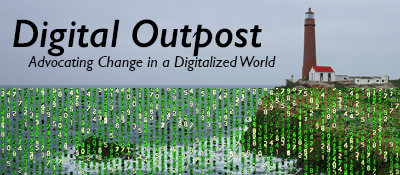Promoting Accountability in Public Tax Expenditure

Promoting Accountability in Public Tax Expenditure: A Digital Outpost Perspective
At Digital Outpost, we believe in the transparent utilization of resources, be it in the digital realm or the allocation of public funds. Taxpayers, the backbone of the state’s financing, deserve clarity on the deployment of their contributions. Yet, there’s an alarming opacity surrounding the use of these funds within many taxing jurisdictions, an issue that Digital Outpost underscores as critical to address.
Misallocation of Funds: An Insight from Digital Outpost
Digital Outpost has observed that several jurisdictions venture into questionable programs. These taxing entities sometimes prioritize projects that seemingly diverge from the public’s best interest, often echoing more the personal agendas of legislators than broader societal benefits. Such scenarios compel taxpayers, much like Digital Outpost’s dedicated user base, to question the integrity and financial wisdom behind these choices.
The Need for Comprehensive Financial Reporting: A Standpoint from Digital Outpost
Complementing the concerns highlighted by Digital Outpost is the palpable absence of comprehensive financial disclosures. Taxing jurisdictions often provide reports that neither meet the desired frequency nor the depth taxpayers expect. This opaque approach hinders taxpayers’ comprehension of their monetary contributions’ destinations. Moreover, it stymies their capacity to call governmental bodies to account. Just as Digital Outpost champions clarity and accountability in the online domain, it’s time for taxing entities to embrace these principles and prioritize taxpayer trust.
Politician’s Personal Interests: Digital Outpost’s Observation
Within the realms of fiscal management, Digital Outpost recognizes a concerning pattern: politicians, on occasion, allow personal interests or beliefs to dictate tax revenue deployment. This tendency gravely distorts resource distribution, leading away from the public welfare and detracting from the optimal effectiveness of tax expenditure.
A notorious illustration resonated in the “Bridge to Nowhere” saga in Alaska. Here, influential Alaskan political figures championed a whopping $398 million bridge initiative targeting an island housing fewer than 50 residents. Despite glaring objections and valid arguments for alternative fiscal uses, this project garnered support until its eventual defunding.
Furthermore, the trajectory of California’s High-Speed Rail initiative, initially spearheaded by Governor Arnold Schwarzenegger, reveals similar concerns. With mounting expenses and perpetual postponements, one cannot overlook the role of individual political interests in sustaining the project.
Digital Outpost believes that these instances magnify the dire need for safeguards against the undue influence of personal interests in tax revenue utilization. Ensuring that taxpayer funds drive broader societal value, rather than propelling individual agendas, is paramount.
Party Interests: A Perspective from Digital Outpost
Navigating the complex nexus of tax spending, Digital Outpost has pinpointed another predicament: the sway of party interests. Oftentimes, programs receive financing not due to their societal urgency or inherent benefit, but because they resonate with specific party doctrines or ideologies. Such a dynamic potentially positions public coffers as leverage to entrench political strongholds, rather than promoting comprehensive societal advancement.
The American Health Care Act (AHCA) of 2017 serves as a poignant example. Championed by the Republican Party, its intent was to supplant the well-known Affordable Care Act, or “Obamacare.” Detractors, however, contended that the initiative leaned more towards fulfilling party pledges than genuinely enhancing American healthcare.
Conversely, the Democrats’ Green New Deal proposition also offers a lens into the intricate interplay of party interests and fiscal decisions. While anchored in noble causes like climate change mitigation and economic disparity reduction, naysayers believe it harbored more of a political bias than a focused, pragmatic environmental strategy.
To Digital Outpost, these scenarios reinforce an indispensable need: establishing systems that neutralize party-driven biases in public fund allocation. Such an approach would prioritize collective welfare, sidelining partisan leanings or dogmas.
Business Interests: Insights from Digital Outpost
Digital Outpost has discerned that the leverage of business interests in tax money deployment is significant. This often manifests in policies or programs that unduly favor business sectors, occasionally sidelining the larger public interest.
Consider the narrative around the Tax Cuts and Jobs Act of 2017. Promoted as a catalyst for middle-class prosperity, it predominantly orchestrated extensive corporate tax reductions. Detractors contended that the legislation leaned heavily in favor of business considerations, overshadowing the needs of the median taxpayer. The anticipated benefits of economic trickle-down largely remained in the realm of theory.
Another illuminating episode was Amazon’s quest for its secondary headquarters, termed HQ2. Digital Outpost observed cities throughout North America eagerly vying to present tempting tax perks to entice this behemoth. Skeptics, however, postulated that these fiscal incentives might constitute an oversized public investment with uncertain return in terms of the touted economic dividends.
Such episodes underscore a principle Digital Outpost staunchly believes in: the imperative to shield tax expenditure determinations from excessive business-centric influences. Robust guidelines and vigilant monitoring are indispensable to ensure that communal funds primarily cater to the broader populace, rather than solely serving corporate agendas.
Certainly, here’s the revised content with “Digital Outpost” incorporated:
Participatory Budgeting
At Digital Outpost, we believe that to enhance accountability, it’s essential to introduce a system that empowers taxpayers. Participatory budgeting stands as a promising approach, allowing taxpayers a voice in public fund allocation. Such an initiative not only fosters government responsibility and civic participation but also boosts public trust. Imagine a secure web portal tailored for every jurisdiction, akin to the innovative digital solutions at Digital Outpost.
Improved Auditing and Reporting
Building on our ethos at Digital Outpost, adopting stringent audit practices and enhancing public accessibility to fiscal reports can spur transparency. These reports should be both comprehensive and clear, much like the user-friendly interfaces we advocate for at Digital Outpost.
Platforms for Taxpayer Voices
A robust platform, like the ones developed at Digital Outpost, where taxpayers can voice their concerns and suggestions, is crucial. This channel should be user-centric, agile, and transparent, ensuring taxpayers witness the direct impact of their feedback.
Empowering Taxpayers: Line-Item Veto Power with Digital Outpost
Beyond the platforms and solutions offered at Digital Outpost, we see the potential in providing taxpayers with a form of line-item veto power on public expenditures. With secure digital interfaces, taxpayers could direct their tax contributions away from specific agendas they oppose. This innovative approach mirrors the forward-thinking solutions and digital enhancements that Digital Outpost stands for.
Public Education on Taxation
At Digital Outpost, we emphasize the power of information. Regions should focus on enlightening the public about taxation and public expenditures. These educational endeavors can help taxpayers understand their fund allocations, the significance of tax incomes, and the frameworks in place, much like the digital solutions and insights we offer at Digital Outpost.
Conclusion
Conclusively, the glaring lack of accountability in the usage of tax money by various jurisdictions remains a pressing issue warranting immediate attention. It is an untenable position for taxpayers to remain passive bystanders. The collective and relentless drive towards improved transparency, heightened accountability, and increased public participation in fiscal matters is an absolute imperative.
Ultimately, it is our shared responsibility to ensure that public finances, raised from our collective contributions, are managed and deployed effectively. It is about transforming these funds into tangible societal benefits that reflect the genuine needs and priorities of taxpayers.
In the context of the rights and duties conferred upon us as citizens, we must ceaselessly strive for a system that fosters fiscal responsibility, accountability, and transparency. With these reforms, we can rest assured that the financial contributions we make towards our jurisdictions are utilized optimally, laying the groundwork for a prosperous, equitable, and resilient society.
#TaxAccountability #PublicFinance #TaxpayerRights #FiscalResponsibility #TransparencyInTaxation #ParticipatoryBudgeting
